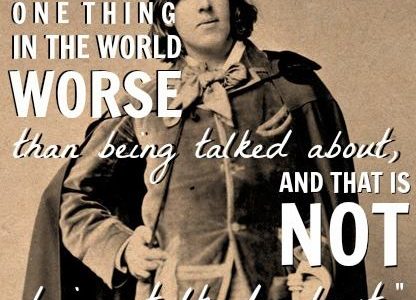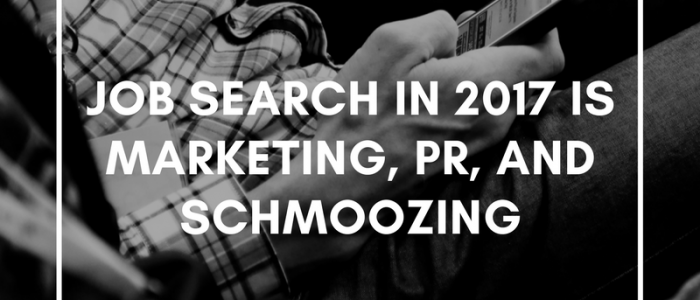

1. Create a blog
2. Lead local workshops/lunch learnings or training

3. Incessant online/offline conversations
Read Job Search in 2017 is Marketing, PR, and Schmoozing

4. Using creativity, audacity, and disruption to reach hiring managers

Mark Anthony Dyson ★ Career Writer ★ Speaker ★ Thinker ★ Award-winning Blog & Podcast! ★ "The Job Scam Report" on Substack! ★ I hack and reimagine the modern job search!



Read Job Search in 2017 is Marketing, PR, and Schmoozing




I will be going to a new schedule for the fall. I will publish bi-weekly shows instead of weekly ones. However, I will be posting on the blog three times a week instead of twice.
As a reminder, you’ve heard me say recently on the show my podcast summer hiatus is from July 19-Sept. 12. I plan on to enjoy my summer, but I get lots of work at this time too. I have some projects scheduled to need more of my attention. I will continue to publish the newsletter but will every two weeks.
This past Tuesday night, I conducted the second Job Lab workshop for the Greater Ashburn Community Development Corporation “Aim to Work” initiative. There were five attendees this session and asking about future offerings. We are looking to expand this effort in the future. I hope soon we can do a Facebook Live so we can provide content for those not attending and reach folks who will want to attend live.
Just because you got a degree doesn’t mean things will just happen. This is the beginning. This is an article I wrote for Job2Careers that tells why and practical things you can do to make the most out of potential opportunities.

There is a case for running your job search like a political campaign. There is a lot of communication to clarify your position, show the relevance of your experience, and show you can do a great job. All three reasons are much harder than just applying to jobs online. That is why many job seekers remain stuck because the easiest job search methods take time and investment.
You will need to market to the right employer who is the right fit for you and them. Any hiring contrary to a good fit for both works against you. Your adjustment to the job is critical as you’re there to do the job and learn it without special attention.
Read If Your Personal Brand is Not Disruptive, You Won’t Matter
Being a marketer is a risk. You’re treating yourself more of a commodity. By adding your personality draws attention and conversations will begin.
If your job search is a marketing campaign or a public relations effort, what does it look like:
Marketing yourself has to become constant even during an inactive job search. We can argue if an “inactive job search” is a thing anymore, but everything is marketing and so is every opportunity. You cannot blindly offer value to a company or individual who does not need or want it. It’s the frustration of job seekers who are still appealing to everyone and meeting the needs of no one.